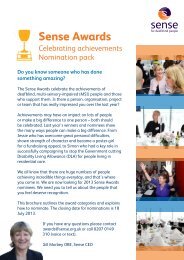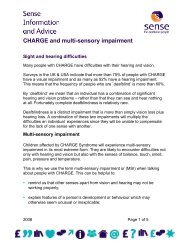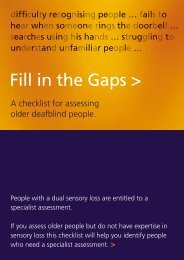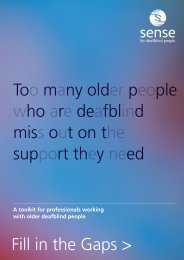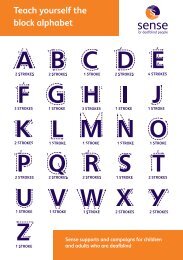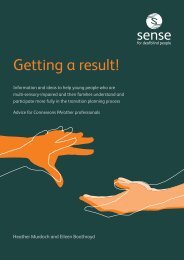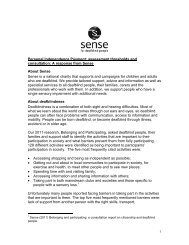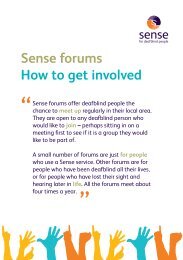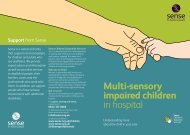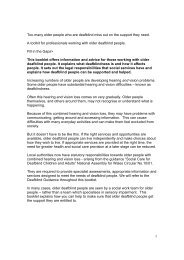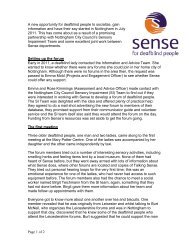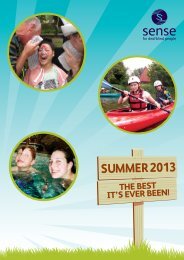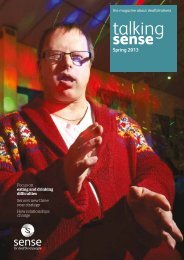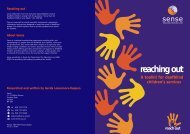MSI Unit Curriculum - Sense
MSI Unit Curriculum - Sense
MSI Unit Curriculum - Sense
Create successful ePaper yourself
Turn your PDF publications into a flip-book with our unique Google optimized e-Paper software.
<strong>MSI</strong> <strong>Unit</strong> <strong>Curriculum</strong>: Phase 4Pupils work with staff on monthly and yearly calendars of significant events.These provide the framework for linked practical activities – for example, buyingand writing cards for a peer’s birthday. The responsibility for developing andusing these calendars is gradually passed from staff to pupil.Pupils regularly use an increasing range of environments including localcommunity facilities (for example, local shops). Outings are prepared andreviewed in school, with pupils taking increasing responsibility for developingprompts and resources such as shopping lists. Staff analyse and fill any gaps inpupils’ knowledge of the purpose and functioning of different facilities, workingclosely with pupils’ families in developing appropriate programmes.Many pupils have difficulty with time management – for example, completingthe tasks involved in getting ready to go home before the deadline of thetransport arriving. Appropriate support systems (such as egg timers and laterkitchen timers) are used to help pupils become more aware of time passing andless dependent on repeated prompts from staff.Pupils are encouraged to develop overt awareness of their own and othercultures, for example through discussion, visits, books, artefacts, performancesand the observance of festivals.Pupils are offered free choices wherever possible. Concrete prompts (for example,photos of peers) may still be used when pupils are choosing from a limited rangeof options, but their use is gradually decreased.Pupils are encouraged to review events evaluatively, for example deciding whichpart of an event they liked best.Orientation, movement and mobility(As far as their physical abilities allow:) Pupils use familiar environmentsconfidently and competently. They can explore and map new environmentsin the presence of a keyworker, and use appropriate mobility skills to followknown routes.They need time to explore new environments before using them.Pupils learn appropriate formal orientation and mobility techniques, adaptedfor their specific sensory and physical needs. These may include the useof appropriate equipment (for example, long cane or electric wheelchair);techniques to identify and avoid obstacles and maintain safety; mapping skillsfor new environments, and the use of landmarks.Pupils practise independent mobility, using appropriate techniques, in bothindoor and outdoor settings. Functional contexts are used – for example, taking amessage to a different class.91



